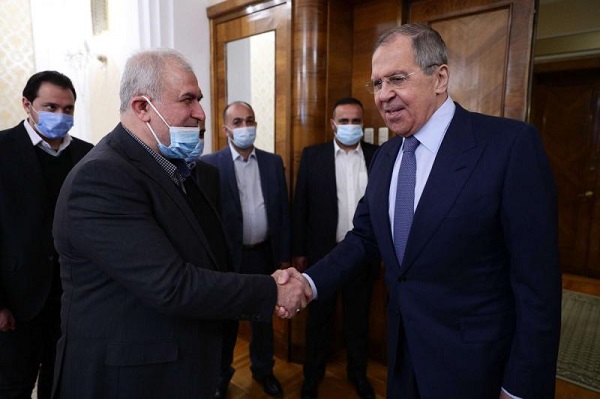AhlulBayt News Agency (ABNA): One of the signs that Russia under leadership of Vladimir Putin pushed for transformation into a world power with the capability to influence an international order heading to multi-polarity is the role played by Moscow in West Asia and especially in Arab countries in recent years.
Although the turning point and actually the key indicator of Russia’s role in the Arab world was entry to the Syrian war in favor of the central government’s battle against a litany of foreign-backed terrorist groups, the Russian push to get a foothold in other Arab countries, including Lebanon, is observable. Lebanon, which due to its special demographic composition, sensitive geopolitical position, and a political history full of disputes has always been a competition field of regional and international rivals, is among the countries on which Russia has its eyes for influence in its regional policy.
On Wednesday the news of a Lebanese Hezbollah delegation visiting Moscow for talks with the Kremlin officials hit the Lebanese media headiness, as it gained the attention of the US. The State Department Spokesman Ned Price on Friday reacted to the visit, labeling Hezbollah a “terrorist” movement and with an apparently bullying language said that the White House asks all countries not to differentiate between Hezbollah’s political and military wings.
Despite the US concerns, a look at the Hezbollah parliamentary delegation's return from Moscow shows that the content of the talks revolved around facilitating the formation of a government in Lebanon amid months-long limbo, helping improve the fight against the coronavirus, cooperating to stabilize Syria, and creating conditions for return of the Syrian refugees to their country.
"Russian friends have paid much attention to the issue of consolidating stability in Lebanon. Cooperation with Russia over the coronavirus vaccine has begun and will bear positive results,” said Ammar al-Mousawi, the head of Arab and international relations and communications at Hezbollah.
With the agenda of the visit apparent and for help reasons, why is the US unhappy with the trip and reacts to it?
Crisis and destabilization and their continuation have been the main face and result of the way the US in recent years dealt with the Lebanese developments. The hyper crisis caused by accumulated foreign debts, national currency value loss, inflation, corruption, and coronavirus outbreak make the job of any government in Lebanon grueling to get the economy back on the track.
Meanwhile Washington, on the one hand by imposing sanctions on Lebanese figures and institutions and on the other hand by pressing the political parties to avoid partnership with Hezbollah puts the grids under new cabinet formation in the crisis-hit nation. The US obstructions went far behind ordinary, even foiling the French President Emmanuel Macron’s initiative which drew support from a majority of the political parties in Lebanon.
At the insistence of the March 14 Alliance and Prime Minsiter-Designate Saad Hariri and under pressure from Saudi Arabia and the US and also under the pretext of popular protests in 2019, the political stability has been taken hostage with populist and unrealistic slogans about the formation of a technocratic government in Lebanon with its rainbow of minorities and ethnicities. While the government formation is obstructed, Hezbollah as a top power in the Lebanese politics responsibly suggested that in the middle of the power vacuum one of ways to help people was negotiations with the foreign countries capable of aiding Lebanon. But Hariri’s trips to Turkey and Saudi Arabia whose promises of help did not go beyond words, have settled nothing of the Lebanese tremendous problems.
Seeking to boost its place in the West Asian developments, Russia is interested to play a facilitative and stabilizing role in Lebanon. Such an approach showed itself when Moscow took steps to prevent a new Israel-Hezbollah war. In fact, Moscow seeks a bigger role in the complex regional wars and tensions— like the tensions between Tel Aviv and Hezbollah— which it has not had an access to before. It has stepped up its relations with the parties involved in recent tensions. Russia-Hezbollah cooperation in the Syrian crisis very well showed the possibility of a fruitful alliance between the two sides in regional developments to prevent destabilizing Western interventions and the spread of terrorism. Apparently Washington looks at Moscow-Hezbollah boost of relationship and partnership like a threat to its illegitimate interests in Lebanon and the whole region.
/129
source : Al Waght
Thursday
25 March 2021
7:33:26 AM
1126068

One of the signs that Russia under leadership of Vladimir Putin pushed for transformation into a world power with the capability to influence an international order heading to multi-polarity is the role played by Moscow in West Asia and especially in Arab countries in recent years.
